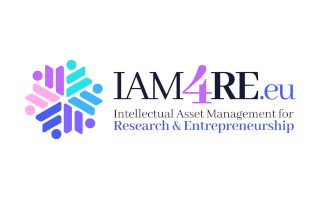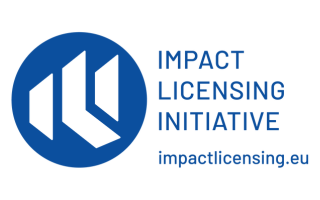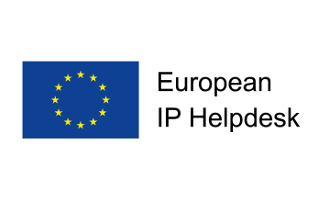Knowledge valorisation in Europe: why intermediaries matter and how to start engaging
If we got a cent every time the term knowledge valorisation came up in a day, we would already have a respectable pile of coins. The concept is everywhere: in EU policy documents, in stakeholder meetings, in research proposals, in countless discussions about impact. The European Commission has placed knowledge valorisation at the centre of its innovation agenda, with the Knowledge Valorisation Platform connecting players across Europe to turn research into sustainable products and solutions, from social progress to improved policy-making.
But while we talk a lot about knowledge valorisation, the real challenge lies in how it happens. While channels and tools are recognized in theory, implementation varies. In practice, much of this process depends on intermediaries - diverse organisations that act as connectors in the innovation chain. A university technology transfer office guiding collaborative research agreements with industry. A digital innovation hub supporting SMEs in testing new technologies. A citizen engagement group mobilising communities around climate innovation. Their roles vary widely across Europe, but all contribute to turning knowledge into impact.
In countries and regions with established innovation ecosystems, intermediaries are often well networked and visible at European scale. In many Widening countries and less developed regions, intermediaries remain scattered, less formalised, and often under-recognised. Others contribute to valorisation without even identifying their work as valorisation. The result is fragmentation and missed opportunities for synergy, weakening Europe’s collective capacity to valorise knowledge.
European policy has taken important steps to address this challenge. The Guiding Principles on Knowledge Valorisation (2022) and the four Codes of Practice provide a common direction and practical reference points on issues such as intellectual asset management, industry–academia collaboration, standardisation, and citizen engagement. Still, the connection between European guidance and daily practice is often missing. The Commission’s latest results of the survey on the Codes of Practice illustrates that while over half of respondents were unaware of the Codes until the survey, but once introduced, more than three-quarters of respondents found them helpful and 61% have used or plan to use them. This shows both the potential of the Codes and the need for stronger connectors who can raise awareness, translate principles, and make them work on the ground.
This is where intermediaries themselves, and the networks that connect them, are essential. They give visibility to under-recognised actors, enable mutual learning across different contexts, and make sure valorisation is not concentrated in a few advanced ecosystems but shared as a European strength. Strengthening intermediaries, especially by bringing Widening countries into the conversation, means strengthening Europe’s ability to turn knowledge into impact. That means shared templates, common vocabularies, and cross-border peer groups that share practices.
Where we at RISE stand and what we do
RISE connects diverse stakeholders and actors within the knowledge valorisation ecosystem. Based in Croatia, we make sure that less formalised ecosystems have a voice in shaping Europe’s innovation policies while staying close to evolving guidance from Brussels. At the same time, we help advanced ecosystems remain attentive to lessons and opportunities from Widening contexts, a two-way exchange that strengthens everyone.
We put this into practice through initiatives such as IAM4RE, the Impact Licensing Initiative, and the European IP Helpdesk. These projects allow us to work on concrete mechanisms from IP strategy and responsible licensing to pathways that move research results from the lab into adoption. Within the Eurice & RISE project portfolio, we also run dedicated innovation ecosystems, including one on valorisation practices, where approaches are tested, lessons captured, and insights fed back into policy debates.
Why this matters now — and how to engage
To start you can join several ongoing discussions on knowledge valorisation. The European Commission’s Knowledge Valorisation Talks offer regular opportunities to hear from practitioners and policymakers. The next edition, on 14 October 2025, will focus on new ways to manage intellectual assets and bring research to market. National and local actors will share concrete practices on collaboration, licensing, spin-offs, and IP transfer, providing actionable insights for anyone working at the interface between research and innovation.
Another key opportunity comes just a few days earlier: on 9 October 2025, the European IP Helpdesk hosts an online stakeholder session, “IP Valorisation Along the Innovation Journey”. Using a use-case format, the event will map how initiatives interact along the pathway - from results to impact, from valorisation to internationalisation. Confirmed contributions include IAM4RE, IMPACT3IP, IP4OS, the Horizon Results Platform, Booster, widerAdvance Facility and the Impact Licensing Initiative, among others. The session will also launch a new Community of Practice on IP & Valorisation, opening an ongoing space for dialogue and collaboration.
Europe’s excellence is not in doubt, but it needs stronger connective tissue. Empowered intermediaries, visible across borders and grounded in daily practice, are essential. The upcoming discussions are one step forward, and RISE will keep building bridges, amplifying Widening voices, and linking practice with policy so that knowledge valorisation delivers for all.


